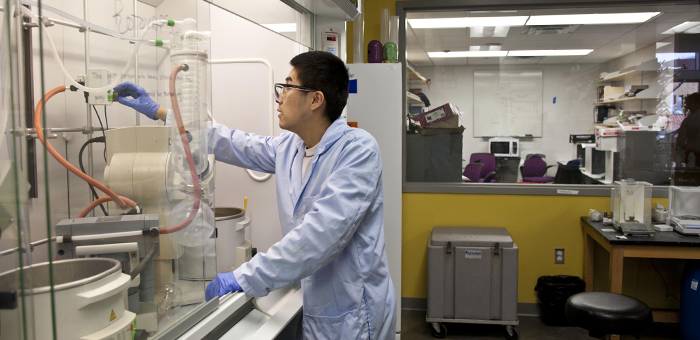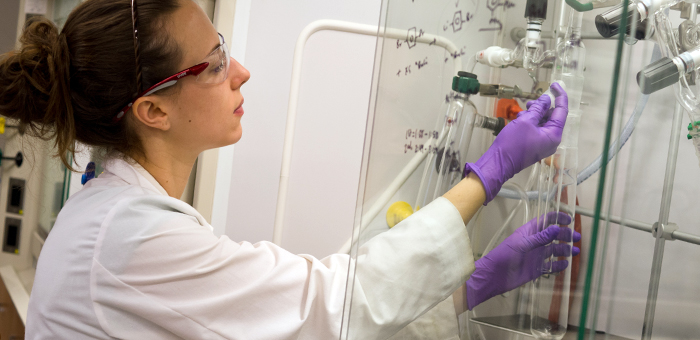All graduate students must take six courses for their graduate program, and the course selection is very flexible to allow each student to tailor the program to his/her research interests. The six courses may encompass any area of science or engineering, including the five areas of chemistry (analytical, biochemistry, inorganic, organic, physical), computer science, molecular biology, physics, pharmacy, and life sciences, among others. Most graduate students select a research group in the fall semester of their first year based on interviews with faculty and current graduate students, by attending group meetings, and by attending faculty seminars.
New graduate students are typically supported as teaching assistants (TA) during their first year, and then financial support is provided by TA positions or by graduate research assistant positions thereafter depending on the funding status of the permanent research group.
All graduate students undertake their qualifying exams, either an oral exam or series of written exams, or combination thereof, during the second year of the program. After passing these exams, the students are eligible for admission to doctoral candidacy and may focus fully on their doctoral research. Some sub-disciplines of chemistry within our department also have written evaluation or cumulative exams. At some point during their graduate years, most students give divisional seminars to present their research, and this is a great way to develop effective oral presentation skills and remain well connected to their specializations.
Although advanced course work is an integral part of the doctoral candidate’s program, no set minimum number of research hours is required for the degree. The Ph.D. is awarded on the basis of the candidate’s mastery of the selected field and the ability to pursue independent scholarship and research. The average time needed to earn the Ph.D. degree is four to five years, the final three of which are devoted almost exclusively to research work.
The UT College of Natural Sciences is committed to preparing leaders in research communities that are becoming increasingly diverse. We believe that our students benefit from participation in a culture of diversity. The Department of Chemistry encourages applications from individuals within populations traditionally underrepresented in the scientific disciplines. Our goal is to provide all our students with an inclusive and supportive environment in which they can reach their greatest intellectual potential.
More information on areas of research can be found on our faculty research overview and research center website.
More information on degree requirements and coursework can be found under Program Requirements.












